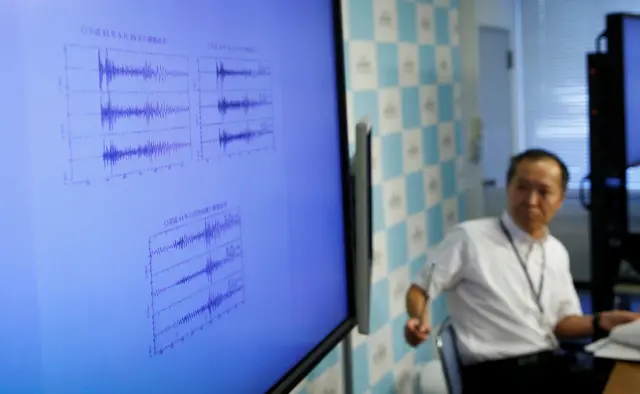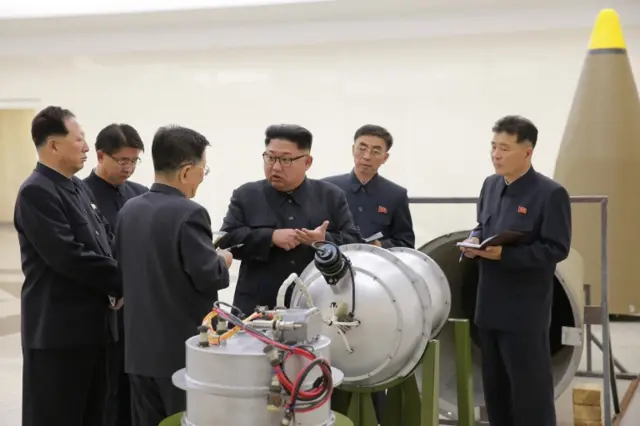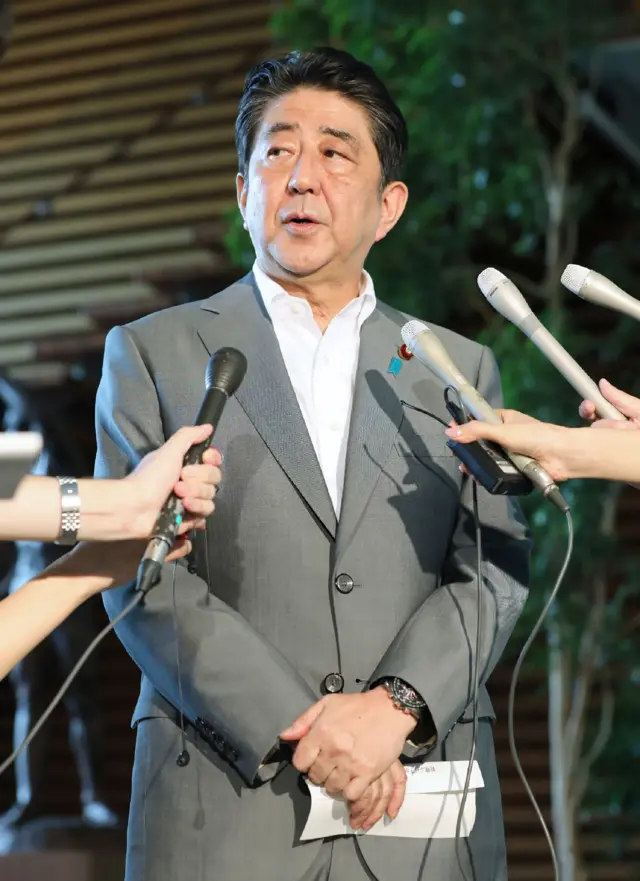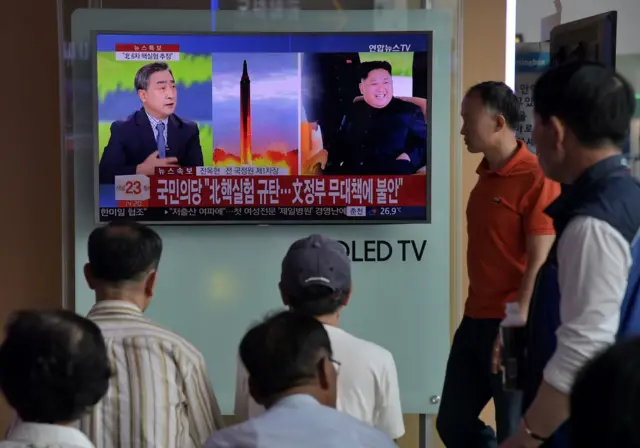International condemnation beginspublished at 07:20 BST 3 September 2017
Here's how countries have reacted to the news that North Korea has likely conducted its sixth nuclear test:
- South Korea has called an emergency meeting of the National Security Council.
- Japan's Foreign Minister Taro Kono said he condemned the test in the strongest terms, calling it an unforgiveable violation of UN resolutions.
- Japanese PM Shinzo Abe had said another nuclear test would be "absolutely unacceptable".
- There doesn't appear to be any comment yet from China or the US.



